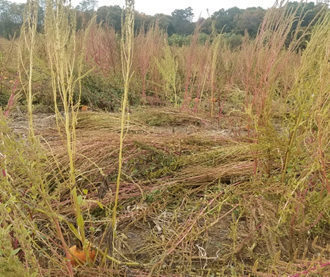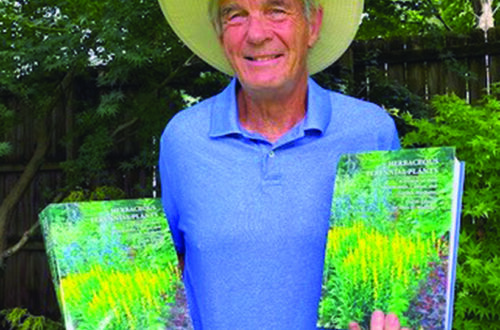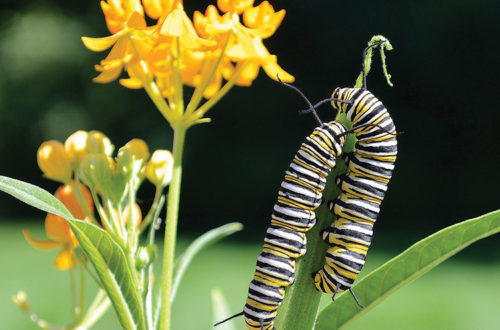NEW HAVEN, CT, Nov. 13, 2019 – Scientists from the Connecticut Agricultural Experiment Station (CAES) have discovered a highly invasive and noxious species of pigweed in Connecticut. The weed, identified as Palmer amaranth (Amaranthus palmeri) is widespread and damaging in the southern U.S. and can be toxic to livestock.
It was found this fall in two pumpkin fields in East Windsor. The weed is highly aggressive and can outcompete many crops, causing dramatic losses in yields.
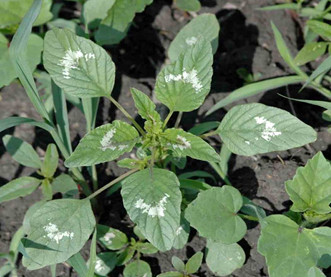
A young Palmer amaranth plant. The leaves often have white or purple, chevron-shaped water marks on the upper surface of the leaf.
It has also been shown to be resistant to many of the commonly used herbicides used to control weeds in crops. Experiments are now under way to screen this population for herbicide resistance.
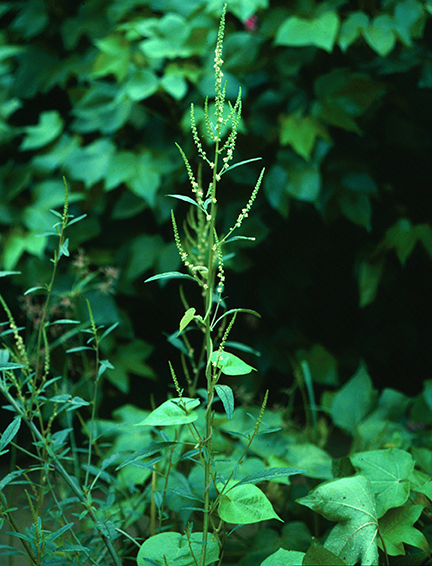
USDA Agricultural Research Service, Bugwood.org
Palmer amaranth
Growers are encouraged to report any new cases of its presence in Connecticut to The Connecticut Agricultural Experiment Station. If you suspect Palmer amaranth on your property, please contact: Dr. Jatinder S. Aulakh, assistant weed scientist. Email Jatinder.Aulakh@ct.gov or phone 860-683-4984.
